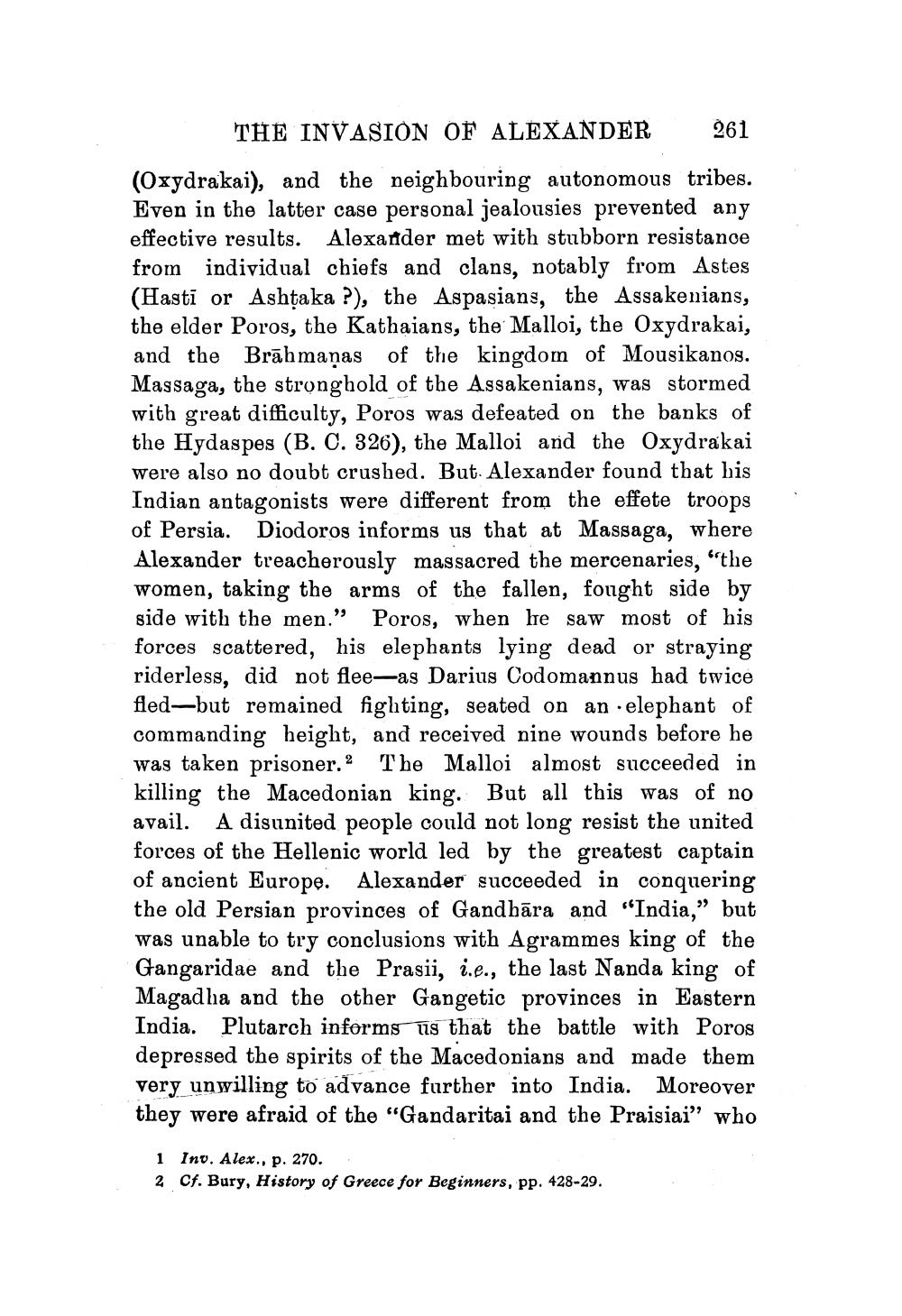________________
THE INVASION OF ALEXANDER
261
(Oxydrakai), and the neighbouring autonomous tribes. Even in the latter case personal jealousies prevented any effective results. Alexander met with stubborn resistance from individual chiefs and clans, notably from Astes (Hastī or Ashtaka ?), the Aspasians, the Assakenians, the elder Poros, the Kathaians, the Malloi, the Oxydrakai, and the Brāhmaṇas of the kingdom of Mousikanos. Massaga, the stronghold of the Assakenians, was stormed with great difficulty, Poros was defeated on the banks of the Hydaspes (B. C. 326), the Malloi and the Oxydrakai were also no doubt crushed. But. Alexander found that his Indian antagonists were different from the effete troops of Persia. Diodoros informs us that at Massaga, where Alexander treacherously massacred the mercenaries, "the women, taking the arms of the fallen, fought side by side with the men." Poros, when he saw most of his forces scattered, his elephants lying dead or straying riderless, did not flee-as Darius Codomannus had twice fled—but remained fighting, seated on an elephant of commanding height, and received nine wounds before he was taken prisoner. 2 The Malloi almost succeeded in killing the Macedonian king. But all this was of no avail. A disunited people could not long resist the united forces of the Hellenic world led by the greatest captain of ancient Europe. Alexander succeeded in conquering the old Persian provinces of Gandbāra and "India," but was unable to try conclusions with Agrammes king of the Gangaridae and the Prasii, i.e., the last Nanda king of Magadha and the other Gangetic provinces in Eastern India. Plutarch informs us that the battle with Poros depressed the spirits of the Macedonians and made them very unwilling to advance further into India. Moreover they were afraid of the "Gandaritai and the Praisiai" who
1 Inv. Alex., p. 270. 2 Cf. Bury, History of Greece for Beginners, pp. 428-29.




